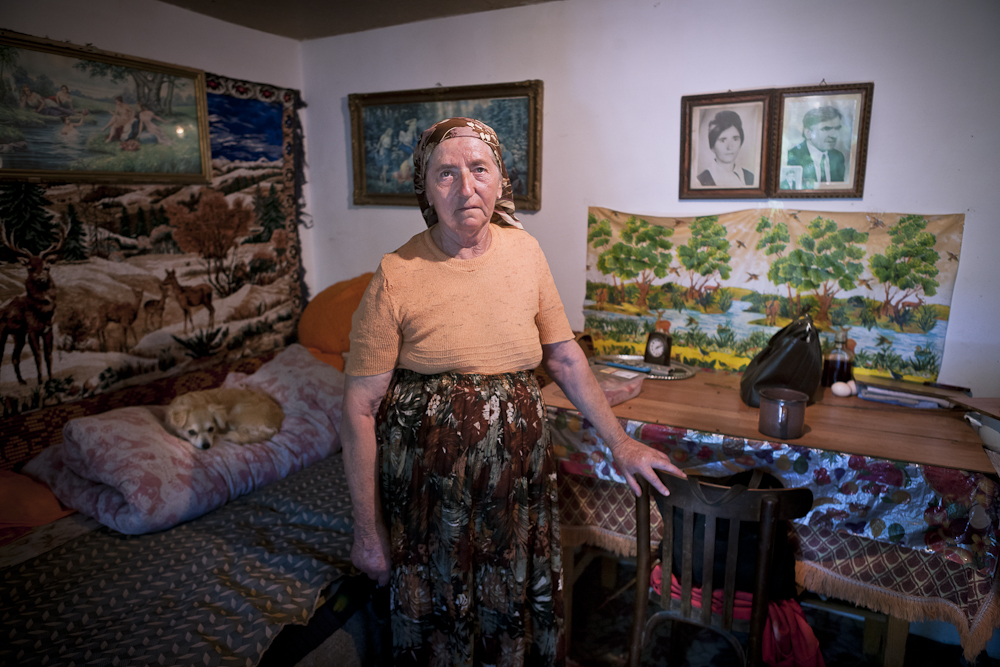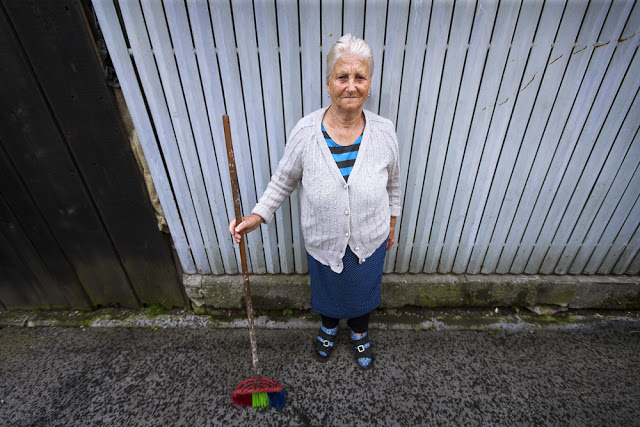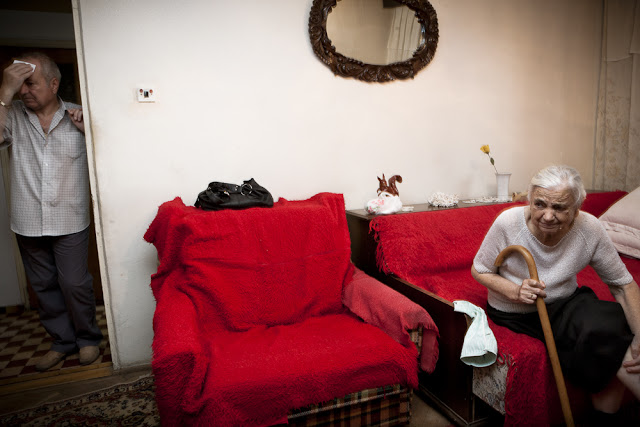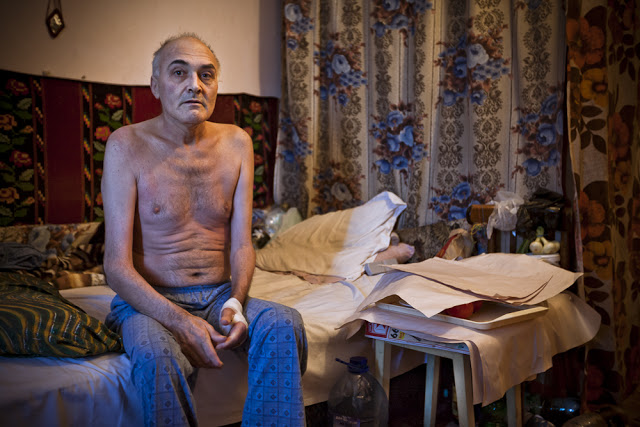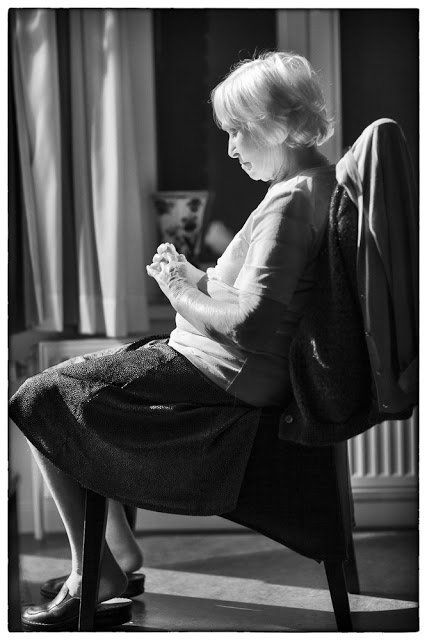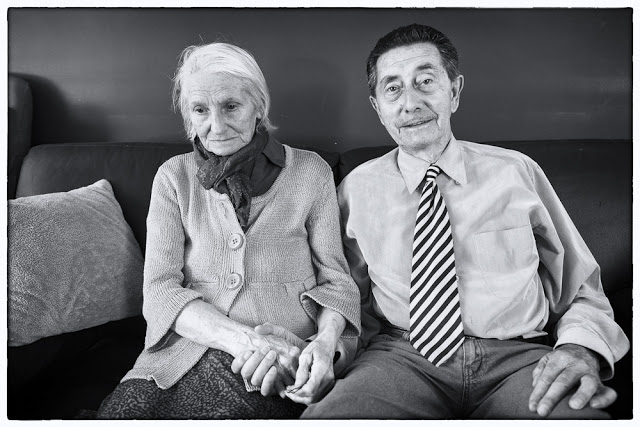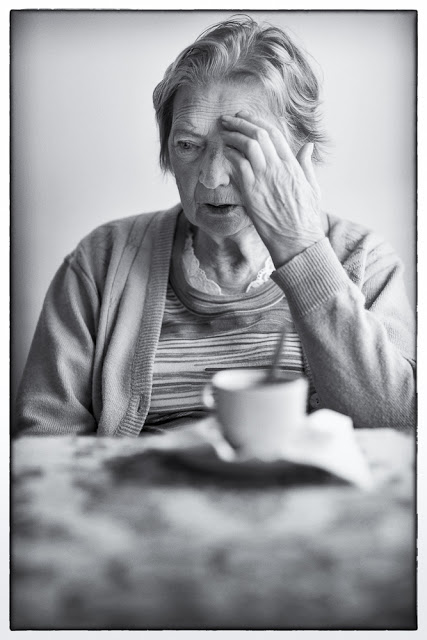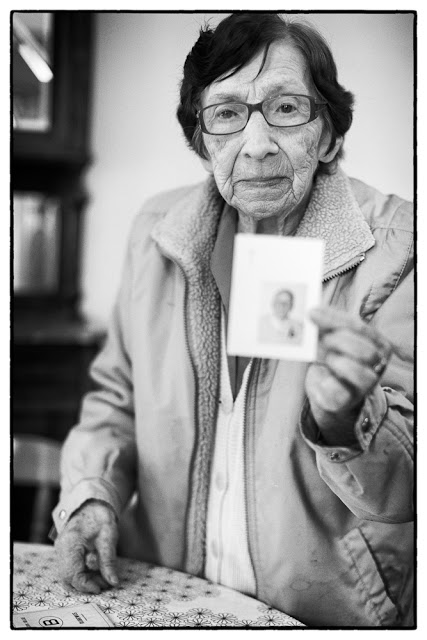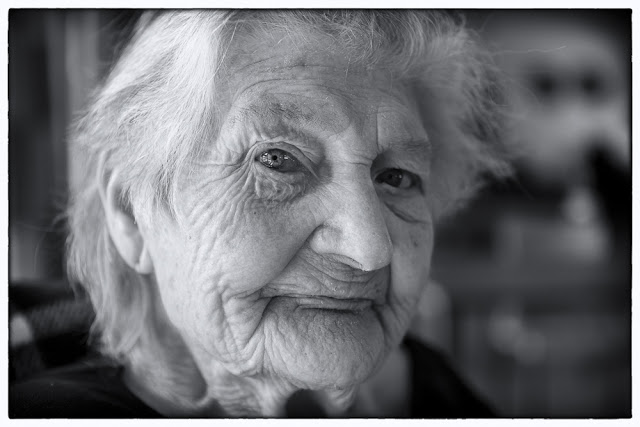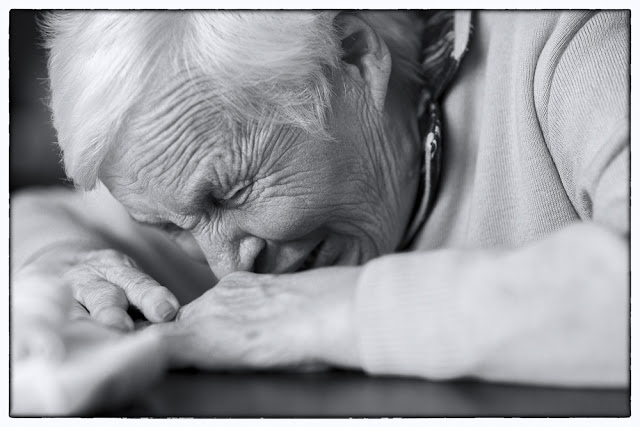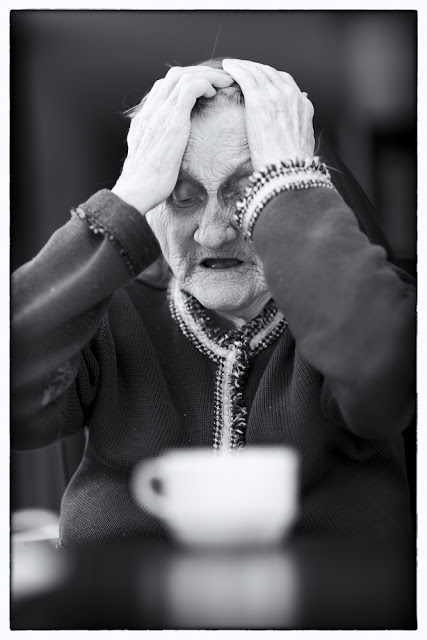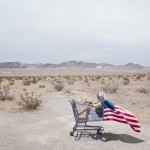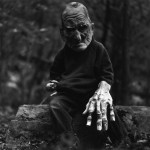“My focus has always been on people: how they survive, how they suffer or fight injustice, how they love, how they care, how they live, how they pursue their ambitions, how they die. I am particularly fascinated by the consequences of population ageing.” -Leo De Bock
Images from Growing Old in Roumania
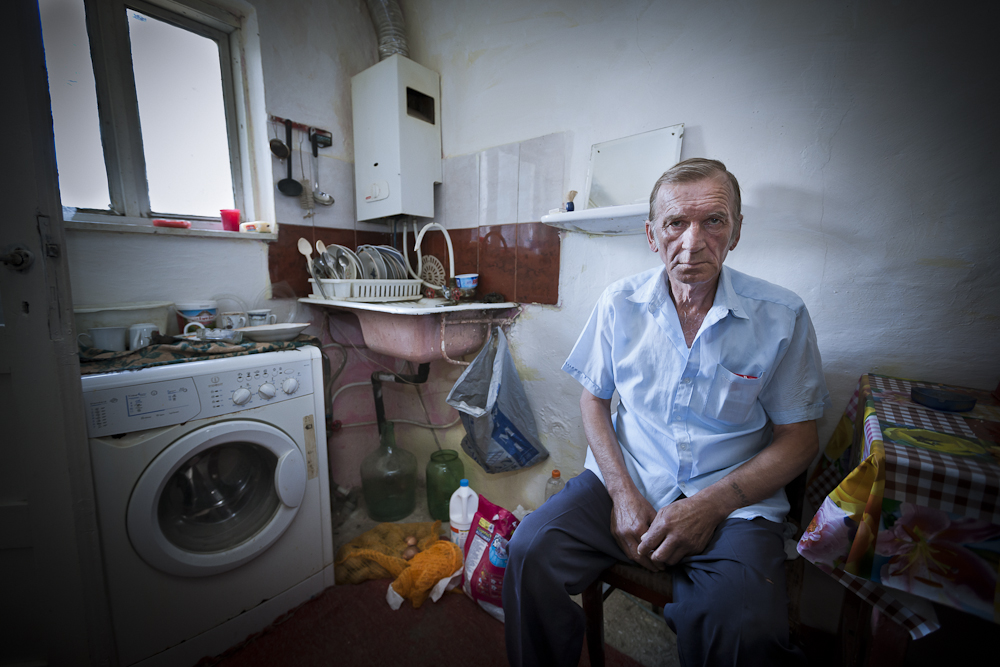
I think it’s important that we look at ourselves, warts and all, through all aspects of our lives. It’s what keeps us real and allows us to celebrate every part of our aging process. Belgium photographer,
Leo De Bock has been engaged in the human condition for a long time. Currently associated with the international photo agency www.reporters.be, Leo started his career as a tv-reporter.
In the 1990’s, Leo became known for his work as a documentary film maker. He was the first and only to do an in-depth documentary about the consequences brought about by the building of the Three Gorges Dam on the Yangtze river in Middle China. Eight years after the disaster in Tchernobyl (Ukrain), he reported about the many young families still awaiting evacuation in the 30 kilometer danger zone. His documentaries won several international awards.
I am featuring work from two series, Growing Old in Roumania and Worlds of Forgetfulness, both insightful looks into what comes at the end of life.
Population ageing is unprecedented, without parallel in the history of humanity. Increases in the proportions of older persons (60 years or older) are being accompanied by declines in the proportions of the young (under age 15). By 2050, the number of older persons in the world will exceed the number of young for the first time in history. Moreover, by 1998 this historic reversal in relative proportions of young and old had already taken place in the more developed regions.
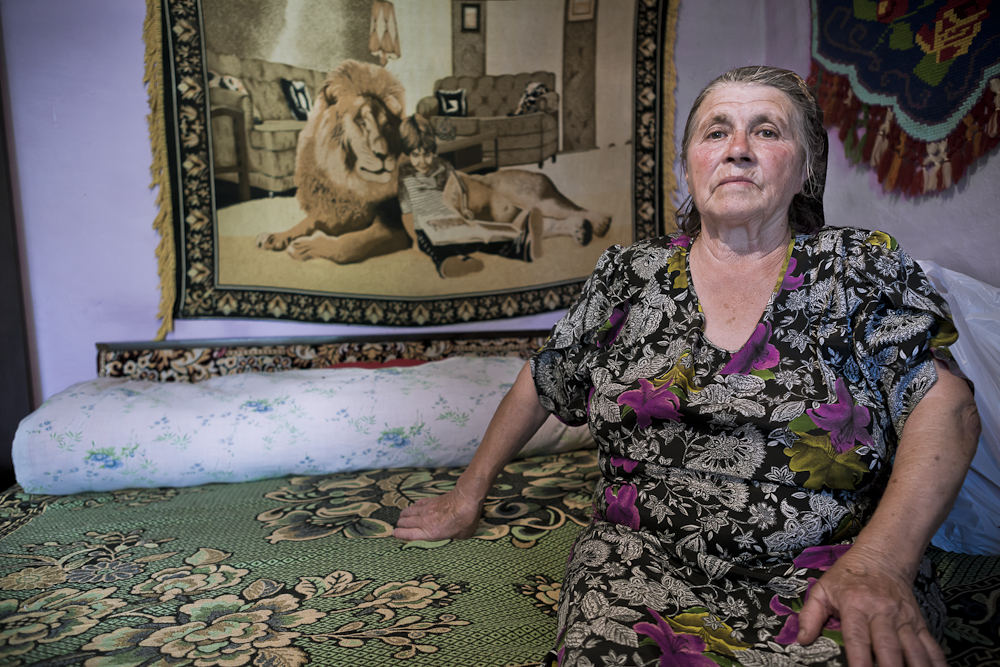
Population ageing is pervasive, a global phenomenon affecting every man, woman and child. The steady increase of older age groups in national populations, both in absolute numbers and in relation to the working-age population, has a direct bearing on the intergenerational and intragenerational equity and solidarity that are the foundations of society. Population ageing is also enduring. During the twentieth century the proportion of older persons continued to rise, and this trend is expected to continue into the twenty-first century. The proportion of older persons is projected to reach 21 per cent in 2050 (scource: UN-report ‘World Population Ageing 1950-2050).
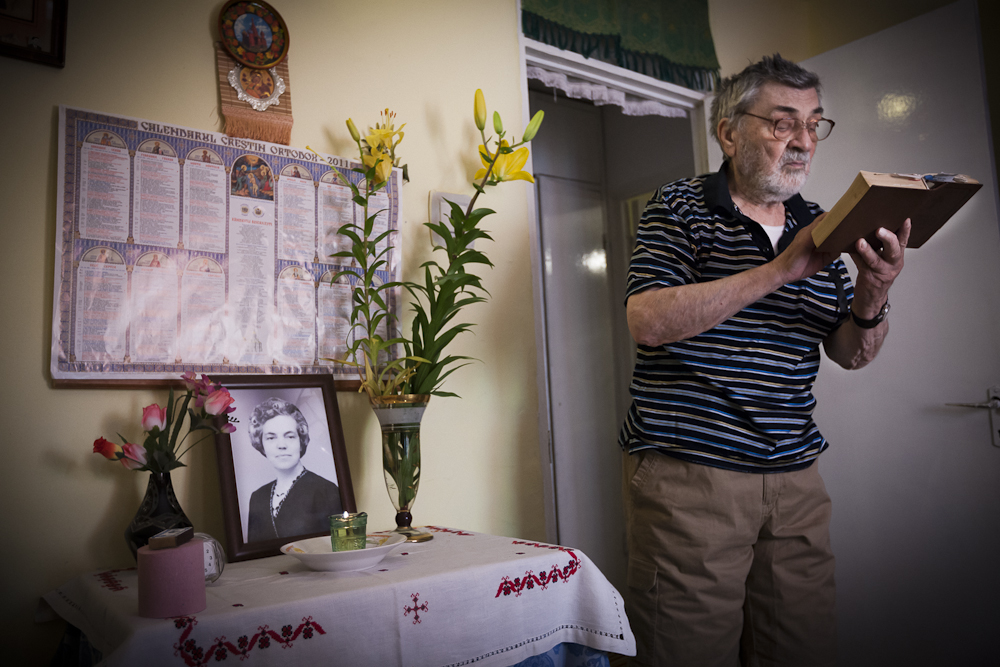
“Working for the Flemish Public Health Department, I got particularly interested in the increasing number of people suffering from dementia. Society as it is now, is not prepared for this tsunami. Dealing with dementia requires a serious reorganization of the social and medical system and in particular, an urgent need to revalue home care. I noticed many people are ignorant about what dementia really implies. I try to tell them. My photos try to tell them.”
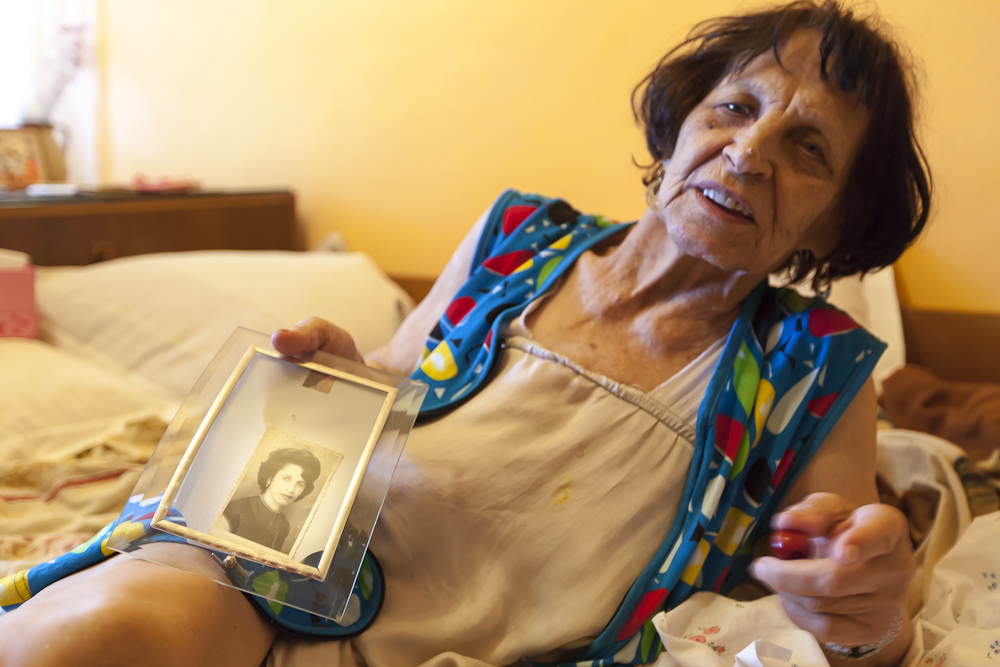
“Population ageing has a specific meaning in former communist countries like the largely forgotten Roumania. In a communist state citizenswere relevant to progress in that they worked and helped produce. Hence, people who were no longer active, like the elder, were of little importance. With the number of old people only growing, the issues becomes more acute. A catch-up is urgently needing. Yet, this exactly what does not happen. I visited old people on the countryside, living isolated, depending solely on home care workers to help them survive. They are poor, sometimes lonely, sad, but they do not give up their pride.”
Images from Worlds of Forgetfullness



